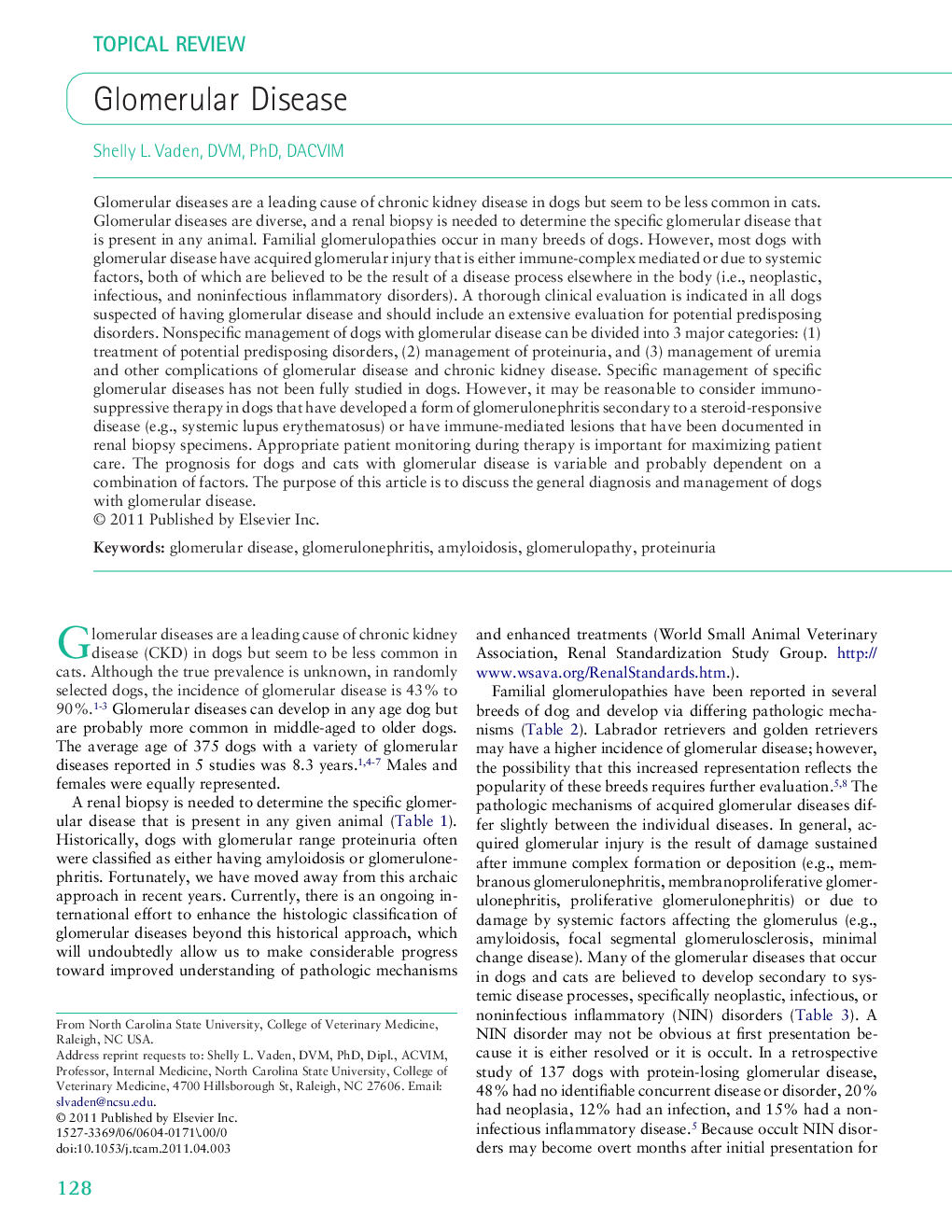| Article ID | Journal | Published Year | Pages | File Type |
|---|---|---|---|---|
| 2401196 | Topics in Companion Animal Medicine | 2011 | 7 Pages |
Glomerular diseases are a leading cause of chronic kidney disease in dogs but seem to be less common in cats. Glomerular diseases are diverse, and a renal biopsy is needed to determine the specific glomerular disease that is present in any animal. Familial glomerulopathies occur in many breeds of dogs. However, most dogs with glomerular disease have acquired glomerular injury that is either immune-complex mediated or due to systemic factors, both of which are believed to be the result of a disease process elsewhere in the body (i.e., neoplastic, infectious, and noninfectious inflammatory disorders). A thorough clinical evaluation is indicated in all dogs suspected of having glomerular disease and should include an extensive evaluation for potential predisposing disorders. Nonspecific management of dogs with glomerular disease can be divided into 3 major categories: (1) treatment of potential predisposing disorders, (2) management of proteinuria, and (3) management of uremia and other complications of glomerular disease and chronic kidney disease. Specific management of specific glomerular diseases has not been fully studied in dogs. However, it may be reasonable to consider immunosuppressive therapy in dogs that have developed a form of glomerulonephritis secondary to a steroid-responsive disease (e.g., systemic lupus erythematosus) or have immune-mediated lesions that have been documented in renal biopsy specimens. Appropriate patient monitoring during therapy is important for maximizing patient care. The prognosis for dogs and cats with glomerular disease is variable and probably dependent on a combination of factors. The purpose of this article is to discuss the general diagnosis and management of dogs with glomerular disease.
